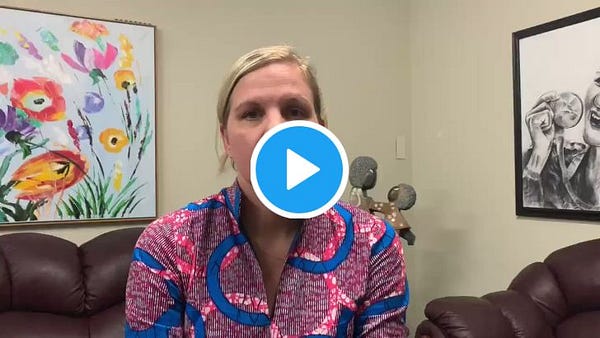If the Olympic Movement is about centering athletes, why do some athletes feel like they are being hung out to dry amid a global pandemic?
The IOC continues to shore up support for holding Tokyo 2020 as is, even as athletes question the strategy.
Today the IOC held a series of conference calls with National Olympic Committees around the world affirming support for every attempt for the Tokyo 2020 Olympics to be held this July.
Four of the five Continental Association Presidents provided statements affirming support for the IOC’s course of action, with only suspended IOC member Sheikh Ahmad Al-Fahad Al-Sabah and the Olympic Council of Asia noticeably absent.
This comes after some NOCs raised the possibility of a potential cutoff date for when the Games would have to be postponed or cancelled.
These statements gave no indication of any backup plans that the IOC is considering even as news about the ongoing COVID-19 pandemic continues to be bleak in different areas of the world.
In addition to speaking with sport administrators, the IOC held a conference call with over 200 athletes to hear their concerns, given that the athletes are the ones that actually have to try and qualify for Tokyo 2020, then go to Japan to compete in a potential 2020 Olympic Games.
Athlete Commission chair and IOC Executive Board Member Kirsty Coventry then put out a video statement that stressed athletes should continue to do what they are doing to train and emphasize that clarity on the qualification process would be shored up soon:


This “constructive” call with the takeaway of continuing to train as if the Olympic Games is on for this July runs counter to what many athletes can do as governments implement social distancing and quarantines to counter the COVID-19 pandemic.
Athletes have begun taking to social media to call out the IOC for a lack of leadership as many of them face an uncertain next few months, and fear over the world’s response to COVID-19 intensifies.


Han Xiao, the chair of the United States Olympic and Paralympic Committee’s Athlete Advisory Council, was on the call with the IOC and detailed what was discussed to Olympics Everywhere. Xiao said that multiple questions were asked if there was a “cutoff date” to when clarity would be given if the IOC was postponing or cancelling the Games, but no answer was given. Instead, the IOC mentioned that every possibility was on the table, but no clear answers were provided.
“It is great that we have hope that the Games will proceed and that hope is welcome with everything that's going on, but at the same time, there's a little bit of a lack of acknowledgement of how serious the current crisis can be and what effects after traveling for training or traveling for competition can have,” Xiao said.
“There was a little bit of downplaying the severity of the virus itself, which was a little bit strange.”
Many of the questions asking the IOC to provide clarity he said were “perfectly reasonable” and there was less of an emphasis of the risks that athletes could expose themselves to in an attempt to keep training, than sorting out what qualifying for the Olympic Games would entail.
This mad dash to qualify has even started to create situation in different countries where facilities open themselves up to Olympic standard athletes, but not amateur sportspeople looking to get much needed exercise (with social distancing) during a pandemic:


To pile on the questions, it seems that many anti-doping agencies around the world have begun scaling down testing as visiting people during a pandemic is a surefire way to continue the spread of the virus. This could open the Tokyo Games, should they ever happen, to be rife with cheating, according to a report from USA Today.
The mental wellbeing of athletes will certainly be tested in the coming months as a lack of information and uniform standards leaves athletes on their own risking injury trying to qualify and stay in shape for the 2020 Games, which will continue to remain under a cloud of doubt.
“I don't think athletes are necessarily doing well with the lack of information,” Xiao said. “When you reinforce you should continue to train and continue to prepare that goes against what some of these local governments are saying.
“The biggest thing here is the transparency around the proper decision making process, and the way the IOC communicates makes a difference. The IOC continues, to talk about, what's going to happen in July. I'm worried that they're not necessarily spending as much time thinking about what impact their words and actions are having right now.”
As the situation continues to change drastically the message of the “Reconstruction Games” is hope. Nowhere is it clearer than the statement of Mustapha Berraf, the President of the Association of National Olympic Committees of Africa, who reportedly represented Algeria during today’s phone call despite stepping down as NOC President last month.
The African Olympic and sports movement is convinced that the IOC’s position is the correct one, and welcomes the sense of responsibility shown by its President, Thomas Bach, who is making considerable efforts to ensure that the Olympic Games are preserved, which is what we all want to happen. We have complete confidence, and confirm that we are entirely willing to fully implement the decisions taken by the IOC and its partners, coupled with the expertise of the WHO.
ANOCA and all its representatives will remain united under all circumstances behind the IOC President, and will contribute efficiently and responsibly to the fight against this global pandemic to ensure the protection of the African athletes, who have made so many sacrifices in the pursuit of their dream of taking part in the Olympic Games in Tokyo. The culture of hope is after all another way of fighting for life.
The Opening Ceremony for the Tokyo 2020 Olympic Games is scheduled to begin in 128 days.
